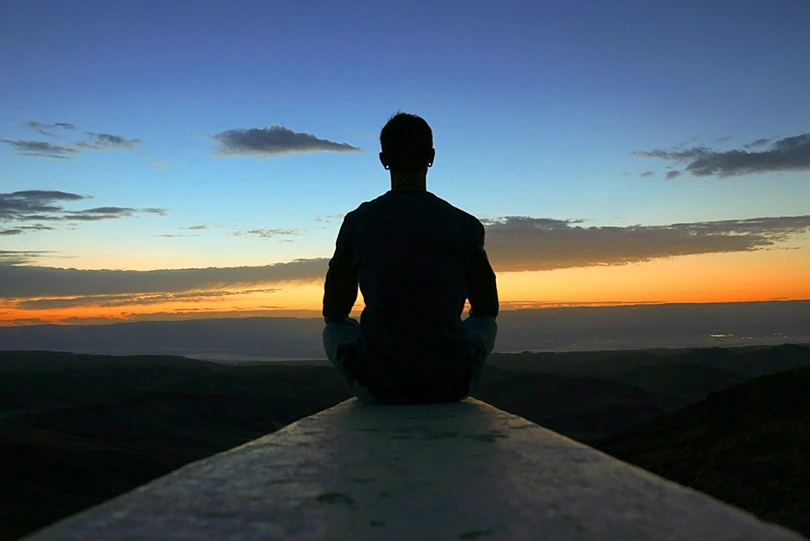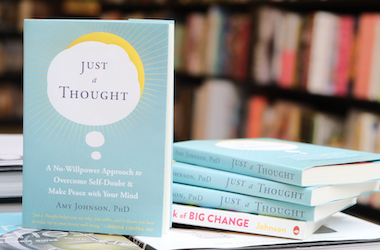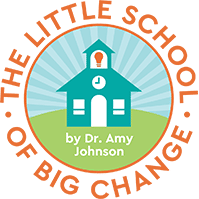When we struggle with feeling anxious this can lead us to feel lost, desperate to change how we feel, and to seek a remedy or cure for anxiety. In this article I will cover briefly what anxiety is, and what the majority of natural anxiety cures or remedies suggest. But most importantly I will point to a fresh, new understanding of anxiety and how to gain relief from it. This understanding points to a root-cause explanation of anxiety, rather than a short-term cure or remedy to heal anxiety. And what’s more this understanding is completely natural and free!
What is Anxiety?
Anxiety isn’t a ‘thing’. It is a word we use to describe a feeling or experience.
Anxiety is the term used to describe a collection of responses within the body to what is occurring in our minds. Typically our thinking starts to get very busy and speeds up and this is felt in the body as a stress response. Symptoms are multiple and may include:
- Racing mind or thoughts
- Increased heart rate
- Increased breathing rate
- Feeling faint
- ‘Butterflies’ in the stomach or feeling nauseous
- Difficulty concentrating
- Difficulty sleeping
- Aches and pains
Whilst some degree of anxious feelings is completely ‘normal’ and part of the being human, if anxiety persists for a long period of time, this can lead us to feel overwhelmed and to start to search for cures or remedies to heal anxiety.
How to Cure Anxiety Naturally
Most of us would prefer to cure anxiety naturally, and there are an overwhelming number of options available to us. The point of this article isn’t to delve into these in any great depth but rather to offer a different type of anxiety relief.
Some natural remedies for anxiety include: CBD oil, magnesium, limiting caffeine and alcohol, stopping smoking, getting a good night’s sleep, exercise, a balanced diet, meditation, breathing techniques and aromatherapy. In other words, these all suggest adding something in.
No doubt you may have tried some of these natural anxiety cures and found they help sometimes but not all the time. This is because, in my experience, they are looking to help in the wrong place. And whilst some of these natural remedies for anxiety may be helpful at times, they rarely offer a more permanent way to heal anxiety.
Another Way – Understanding Anxious Feelings
The current paradigm of thinking about anxiety is that anxious thoughts and feelings are telling us there is something wrong with the circumstances in our lives, with us or with the things we have to do – such as we are anxious about a job presentation or about a health diagnosis. It is also believed that the presence of anxious feelings is telling us something important about our mental health and how we are doing in life. The current belief is that we need something outside of ourselves to heal anxiety naturally. But what if this isn’t true?
What if anxious feelings don’t come from a particular circumstance, or life event or activity, or from a ‘broken’ you, as we may innocently believe? Might relief from anxiety lie in understanding it?

When we are worrying about something that hasn’t actually happened yet most people can recognize they are experiencing their anxious mind. For example, if we are worried about getting ill, we know that in this moment we are healthy, but are imagining a scenario where we are ill and are scared by that. Or we are filled with anxiety about having to start a new job, and are imagining all the things that can go wrong and how we will fail. It can be easy to see the relationship here between our thinking and the feeling.
However most people also believe that these fearful imaginings are giving them important information that they need to pay attention to: information about the future, about their capabilities, about what they should and shouldn’t do. Somehow the equation is, ‘If I feel anxious about something this is telling me I shouldn’t do it’, and this starts to look real. If they are terrified of starting a new job, it means that they won’t look for a new one. Or if they are worried about getting ill, it then means they shouldn’t go out, or must follow a certain healthy lifestyle rigidly. Our minds are only ever trying to look after us but they do make up stories and fill in the blanks, and try to have us believe things ‘out there’ are dangerous.
However the discomfort of this anxious experience is never telling us about what we should or shouldn’t do. Feelings don’t know about the future; they don’t know about the past; they don’t know about our skills or capabilities; our levels of confidence, health or our self-esteem. Feelings ONLY know about where our mind is at in any given moment. Rather than wanting a cure for anxiety, what if feelings of anxiety & worry are a brilliant feedback mechanism of the body to let us know how fast our mind is going? We aren’t aware of the vast majority of our thoughts; it happens at an unconscious level. So it is incredibly useful that we have feelings in our body to reflect what is going on in our minds. Rather than a feeling to be avoided at all costs, what if anxiety is there to wake us up to all the conscious and unconscious noise in our heads? Waking us up to the quality, volume & speed of our thinking?
What helps anxiety is knowing that it is not predictive of the future or what we should do; it is a reflection, or shadow, of our thinking in the moment. We can see it like the rumble strips on the side of the road, as a warning we are off track in our minds, believing a story in our mind that isn’t objectively true. Seen in this way, why would we need to heal anxiety within us?
Yes, anxiety can feel really uncomfortable. Yes, we’d rather is wasn’t there. Yes, it’s OK to want anxiety relief. But what if we can see it for what it REALLY is? A nudge (sometimes a kick in the butt) from our inner selves that our mind is acting like a race track. We’d be wise to recognize the race car in our heads, and do what occurs to us to be kind to ourselves in this moment. Whatever brings us back into the present, and into balance.
When we experience anxiety we are simply experiencing our mind’s scary thinking. This feels very real but isn’t telling us something objectively ‘true’. What if anxiety relief comes from truly knowing this?
Anxiety Relief is Built into us – Our Minds are Designed to Settle Themselves

On a day to day basis there is really very little we have to do to keep our bodies running. We have to eat, drink, move, and sleep but all the ‘heavy lifting’ of keeping us alive is done by the life force that runs through each and every one of us. When we cut ourselves, or our body comes into contact with a bacteria or virus, our amazing immune system mounts a response and heals us. This self-correcting mechanism to bring the body back into balance is built in– there is nothing we need to do.
Our psychological system also has this built in, self-correcting mechanism. However we haven’t always been shown that this is so. We are taught to believe that when our mind is anxious or stressed, we have to do something to fix it – think positively, meditate, go for a walk, do yoga, drink wine. And worse we are led to believe that there is something wrong with us if our mind isn’t as it ‘should’ be.
The human mind is designed to come back to quiet, and peace all by itself – natural anxiety relief is built in. A good metaphor to explain this is a snow globe. If you shake a snow globe the water becomes cloudy as all the snowflakes swirl about. In the same way, as we get caught up in our heads, our mind lacks clarity and gets ‘cloudy’. We don’t see clearly. However if we just set the snow globe down, the water inside clears all by itself. Clarity is restored. It’s the same with our minds. They reset all by themselves.
The mind may not settle as quickly as we would like, but it will settle. The noticing is enough. Once we notice we are on the ‘train of thought’ of anxiety we don’t have to stay on board or let it take us all the way to the station. We are free to jump off the train and wait for it to pass. Once we notice, that is enough to be back in reality, back in the present and not caught up in the fearful imaginings of our mind.
What helps anxiety is knowing it is only ever a temporary experience, that is fluid, ever-changing and not fixed. Anxiety is not a stable part of us regardless of how much we experience it.
In summary, what helps anxiety is a different understanding:
Anxiety is not a problem to be overcome. It is simply a feeling based on where our mind is in any given moment. Emotions are safe and transient. So we don’t need to ‘do’ anything to get rid of them or to move through them. The human system is designed to do this all by itself.
Here’s a quick sum-up of what I have explored in this article:
- The experience of anxiety isn’t telling us important information to keep us safe; it’s telling us we are believing that the anxious story in our mind is true
- Anxious thinking will shift and change all by itself, and so we don’t need to do anything about it, other than notice. Even if we don’t notice, it will still move! Even if we are anxious most of the time, no one is ever permanently anxious
- Our psychological system will reset itself. The snow globe will settle if we leave it alone
The objective of this understanding is not to never feel anxiety again. That’s almost impossible. The objective, if there is one, is to understand where experience is coming from and to be able to feel ANY emotion, including those we don’t enjoy. Knowing that all emotions are safe, temporary, will change all by themselves, and are only ever telling us one thing – about our thought in the moment – is for me the best and most helpful natural remedy for anxiety.
Freedom from Anxiety with Dr. Amy Johnson
Amy Johnson is a psychologist and Change Coach who helps people find freedom from anxiety, habits, insecurity and low self-esteem. She has written several books and leads live courses and group coaching.
Amy Johnson helps find freedom from anxiety through insight and wisdom, not willpower.
One of Amy Johnson’s most popular books is The Little Book of Big Change, about the principles behind the human experience. The Little Book of Big Change shares a unique approach to healing anxiety, worry and insecurity. The Little Book of Big Change will help you understand what is at the root of your anxiety, low self-esteem, and self-destructive habits.
About the Author

Lindsey Elliott is a certified Change Coach.
You can see more about Lindsey and her coaching services here.






